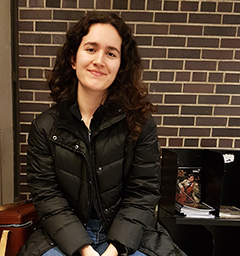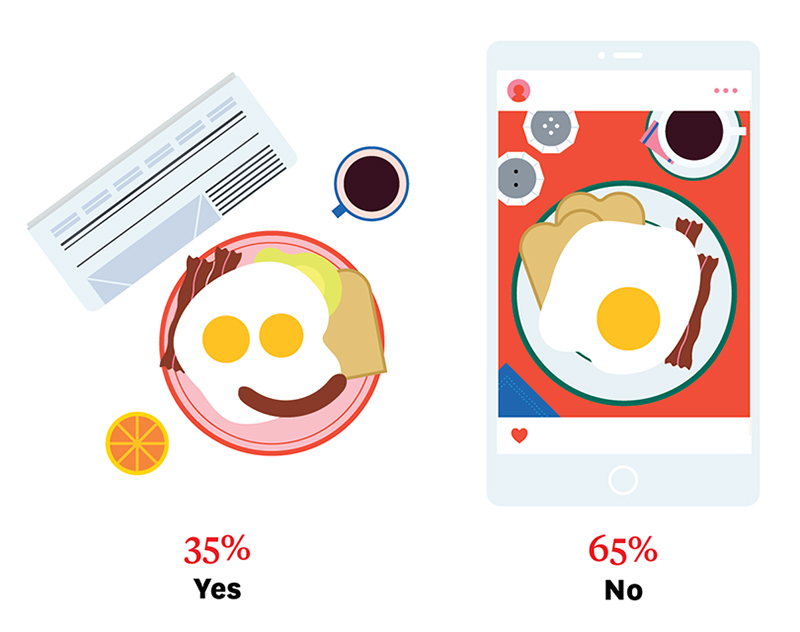With concerns mounting about the addictive power of smartphones, we asked U of T students if they’re able to take time off from the Internet. Most say they can’t – and for some their education is a reason why: “A lot of courses have a Facebook group, so I feel if I were ever to try to unplug, I’d be missing stuff relevant to my coursework,” says Sydney Caskenette, a fourth-year student majoring in psychology and neuroscience.
About 50 per cent of the students who did disconnect did so involuntarily while travelling in areas without reception. Most of the other digital detoxers (35 per cent of whom lasted only a day or less) unplugged to focus on their studies or manage stress. “I’ve tried it because social media has too much of an impact on my life and my emotions,” says Aliana Razac, a first-year life sciences student, who, like many of her peers, says she compares her own life to the “perfect” ones she sees on social media.
This highly unscientific poll of 100 U of T students was conducted on the St. George campus in February.
What two students had to say:
 Matthew Fonte
Matthew Fonte
4th year, history and American studies, University College
I took an involuntary break for four days when I was travelling. It was a real relief to live life as it is and not have to check my emails or be disrupted from my natural flow. I also took a voluntary break from social media for two days, because I felt overwhelmed by a lot of the news – which is particularly [distressing] in this social and political climate.
 Frosina Pejcinovska
Frosina Pejcinovska
3rd year, English, drama, book and media, St. Michael’s College
If I were to take a vacation where I didn’t really need to keep in touch or keep myself rooted in activities that are taking place, I wouldn’t need it. But in day-to-day life when I am busy, when I’m going to class, when I have to speak to people about assignments, it suits my lifestyle to be rooted in this sort of digital media and social media to speak and communicate with the people that I need to.
Recent Posts
People Worry That AI Will Replace Workers. But It Could Make Some More Productive
These scholars say artificial intelligence could help reduce income inequality
A Sentinel for Global Health
AI is promising a better – and faster – way to monitor the world for emerging medical threats
The Age of Deception
AI is generating a disinformation arms race. The window to stop it may be closing




